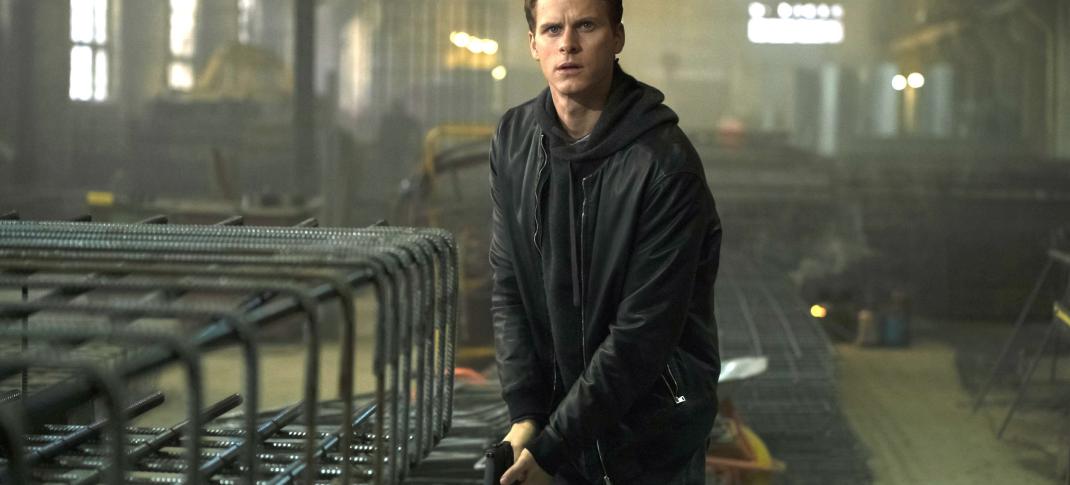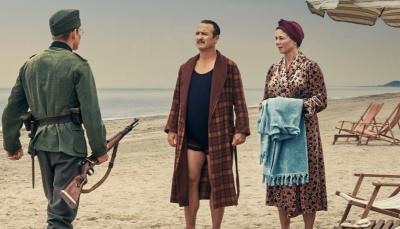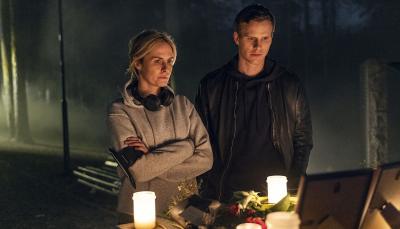'Young Wallander' Is A Prequel Out Of Time

The original Wallander novels were written by author Henning Mankell back in the 1990s. There are 11 books altogether, the first ten of which were published between 1990 and 2004 and then a final one in 2009 after the BBC remake of the Swedish TV series (itself a remake of an earlier film series) brought the stories new fame. The hard-bitten crime stories will be familiar to fans, even if you've never seen the films, which starred Rolf Lassgård, or the two TV series, which starred Krister Henriksson and Kenneth Branagh, respectively. Kurt Wallander is a jaded detective with a penchant for existential thinking and a bloodhound nose for solving crimes in and around his hometown of Ystad in Scania.
Though the novels were set in the 1990s, the TV shows have generally been updated to go with the times. For instance, the Branagh series, which ran on and off from 2008 to 2016, was set in the present day, with Wallander aging along with the actor. By the time the final season ran, Wallander was slowing succumbing to Alzheimer's. So the idea of giving the show the Morse/Endeavour-style prequel treatment of a "Young Wallander" did not seem so far fetched. The novels provide enough passing references to Wallander's early cases. The first novel mentions that he was nearly killed by a suspect early on; there's also divorce in his past. (Wallander struggles with his relationship with daughter Linda, who also suffers from depression in the books.) Add in a few mysteries and it's good to go.
Rewinding the clock to the 1980s to see a bright-eyed and idealistic Wallander seemed a sensible proposition. Moreover, 1980s-set period pieces are big business on Netflix, which has seen success with Stranger Things and Glow. But fans should not break out the neon and hairspray just yet. Young Wallander attempts to create a prequel while also maintaining a modern-day setting, making this series far less of a spinoff and more of a clumsy reboot.
It's not a bad idea on paper. This Wallander (Adam Pålsson) is young, poor, and trying to get by, living in Sweden's version of a council estate. His neighbors, mostly immigrants, don't know he's a cop. And Wallander tries to keep it that way, lest his profession makes him an outcast. But when a hate crime occurs in his complex, killing a young boy, Wallander is helpless to stop it. He pushes to be assigned to the case, despite the obvious emotional ties that create a conflict of interest. Still, the detective in charge, Frida Rask (Leanne Best), accepts his help, since he insists he has the inside track as a resident.
But the problem with this series is two-fold. Young Wallander is written as a prequel, so it assumes the audience already has a certain familiarity with the property. Character details are elided all over the place because we are supposed to know Wallander already. That might work on Endeavour, which traded heavily on nostalgia form the previous series in its first few seasons. Here, you're watching Wallander's early life, but it's not necessarily one that's familiar. It doesn't help that the character, played the Stockholm-born Pålsson speaking heavily accented English, doesn't feel like a specific prequel to any one of its preceding versions, but a conglomerate that's supposed to appeal to everyone.
Some of the attempts at modernizing things also fail, though not for lack of trying. The show has taken pains to make the police station a diverse place instead of the original Wallander's nearly all-white world. But it was also clearly filmed long before the current global police brutality protests. While it attempts to present some conflicting opinions (Becker, Wallander's boss, played by Claire Perkins, sticks up for the rights of racist protestors, for example), institutional police racism might as well not exist as far as the show is concerned.
Also, the original Wallander's cultural specificity (in both TV versions) was one reason the shows worked so well. Here, Sweden could be London or anywhere else in Europe. Netflix seems to be betting this will to be a cross-cultural hit and wants the storyline of racism to feel immediate whether you live in the U.S., the U.K., or anywhere else. But it robs the show of one of its defining features. Simultaneously, the audience is also treated like we're not smart enough to follow the clues without massive exposition. Considering the sheer number of scenes in the first two episodes that grind to a halt as every last detail is spelled out, one might wonder why a few details about Wallander couldn't have found their way in too.
This being Netflix, another series of Young Wallander is probably coming as long as enough people tune in on the name recognition. One can only hope, if it does get a second round, there's an improvement on this rocky first outing.




